Humanities: Lesson 5 The Northern Renaissance and European Exploration
1/65
There's no tags or description
Looks like no tags are added yet.
Name | Mastery | Learn | Test | Matching | Spaced | Call with Kai |
|---|
No study sessions yet.
66 Terms
Luther asserted that the key to salvation was what act?
Faith
What is a similarity between Japanese and Elizabethan theater?
Both appealed to an urban audience
What was the most popular form of secular song at the court of Elizabeth?
Madrigal
Luther’s chorales were meant to be sung by whom?
The entire congregation
Who was the master printmaker of the 16th century?
Durer
What was NOT an objection of Protestant reformers?
Reading the bible in the vernacular
What are the characteristics of Albrecht Durer’s art?
Mastery of engraving techniques
What was an effect of the printing press, during the Northern Renaissance?
Accelerating the spread of Protestantism
Why was the Protestant Reformation of landmark significance?
It shattered the religious unity of Western Christendom
What is suggested by the comparison of Holbein’s Ambassadors and the Ming Dynasty’s Elegant Literary Gathering?
Humanism was not confined to the West
Who was considered the “Father” of the literary form known as the essay?
Montaigne
Shakespeare modeled his own sonnets after those written by which author?
Petrarch
Which Northern Renaissance artist was reputed to have perfected oil painting in such works as his Arnolfini Double Portrait?
Jan Van Eyck
The writings of Erasmus and More, like the Protestant Reformation itself, reflect what aim?
The exercise of Christian conscience
What is a feature in More’s ideal society, which he called “Utopia”?
Cooperation replaced competition and material greed
Which of the following terms refers to the study of the influence of heavenly bodies on human affairs?
Astrology
Which Northern Renaissance artist was the first in Western art to portray a secular couple in a domestic interior?
Jan Van Eyck
Which of the following Northern Renaissance artist was an enthusiastic student of Italian Renaissance art, and had mastered perspective, human anatomy, and the classical principles of proportion?
Albrecht Durer
Japanese No Drama is very similar to the theater traditions of which culture, as it deals with serious theme from history and literature, uses a chorus, and all of the roles were originally performed by men?
Ancient Greece
Which of the following translates as “song-dance-art”, was originally a female performance genre, and is the most popular form of drama in Japan?
Kabuki
Which Northern Renaissance literary figure wrote sonnets that employed-and occasionally mocked- such traditional Petrarchan themes as blind devotion, the value of friendship, and love’s enslaving power?
William Shakespeare
What is the name of the main character’s faithful sidekick in the novel Don Quixote?
Sancho Panza
What was the name of the establishment in Elizabethan London that held between 2,000 and 3,000 spectators, and offered all levels of society access to professional theater?
The Globe Theater
Which Northern Renaissance writing follows the story of a man who immerses himself in the literature of the medieval past, sees himself as a chivalrous knight, and sets out to defend the ideals glorified in these books of chivalry and romance?
Don Quixote
In which literary genre did Shakespeare deal with themes such as the battle of the sexes, rivalry, among lovers, and mistaken identities?
Comedy
Which Northern Renaissance writer’s landmark novel was translated into more languages than any other work, other than Hebrew Bible?
Miguel de Cervantes
Which Northern Renaissance writing takes the form of a “picaresque novel”, recounting the comic adventures of a roguish figure who lives by his wits?
Don Quixote
In which of the new Protestant sects was wealth taken as a sign of God’s favor, and which “work ethic” was held in high esteem?
Calvinism
The Northern Renaissance put Christian humanism at the service of evangelical Christianity, a movement which would feel directly into what?
The Protestant Reformation
Which of the following terms refers to the opposition to the influence of the church in worldly affairs, especially politics, which spread during 15th century in Europe?
Anticlericalism
What type of texts were Northern Renaissance humanists most interested in studying, and translating?
Early Christian Texts
Who was the leading Christian humanist of the 16th century, who is often called “the Prince of Humanists”?
Desiderius Erasmus
The new English Church that broke from the Roman Catholic Church during the Protestant Reformation is also called which of the following?
The Anglican Church
Baptists and Quakes were English offshoots of which of the following new Protestant sects?
Anabaptism
Which are the only two of the seven sacraments of the Catholic church that Martin Luther agreed with and found justification for within Scripture?
Baptism and Holy Communion
Which of the following terms refers to a congregational hymn that serves to enhance the spirit of Protestant worship?
Chorale
Which of the following Protestant sects regarded music as a potentially dangerous distraction to the faithful?
Anabaptists
Which figure of the Protestant Reformation initially viewed music as dangerous but encouraged devotional recitation of psalms in the home, and thus revised church services to include the congregational singing of pslams in the vernacular?
John Calvin
What is the title of the Northern Renaissance artwork in which Death, Famine, War, and Pestilence sweep down upon humankind?
The Four Horsemen of the Apocalypse
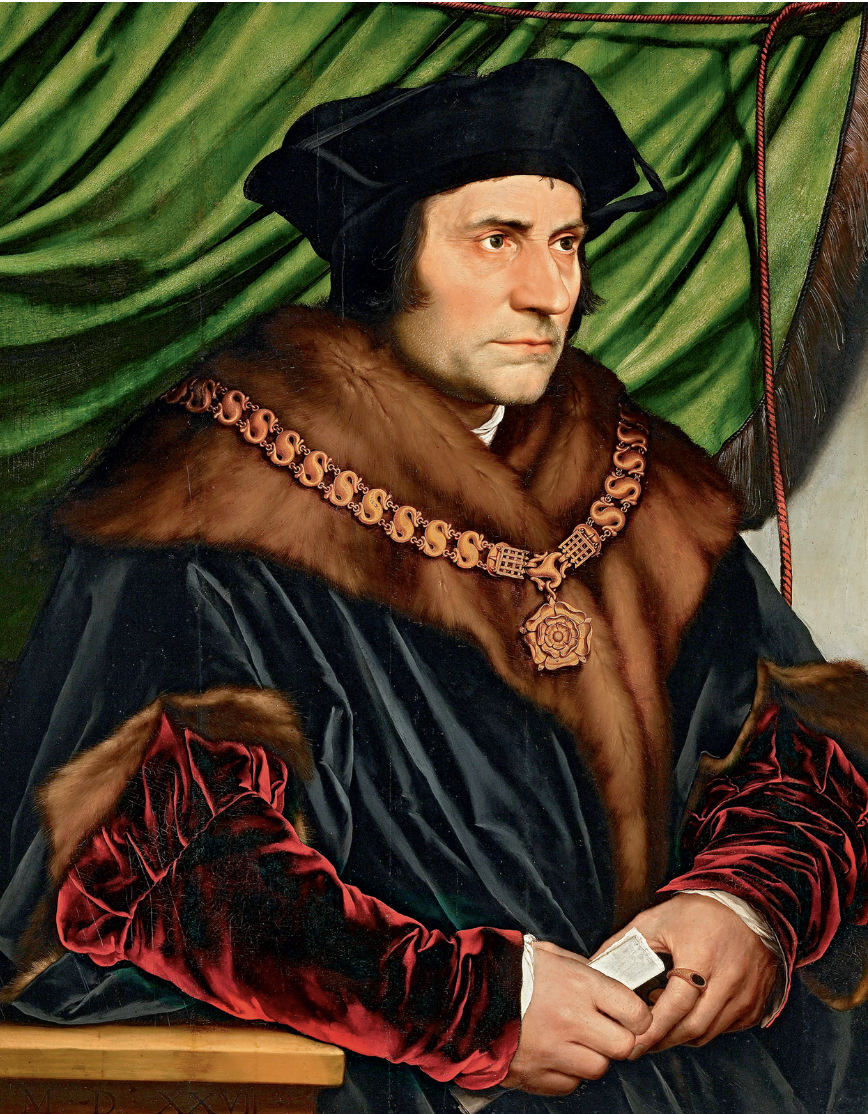
Hans Holbein the Younger, Sir Thomas More, 1530, Oil on Panel (Northern Renaissance)
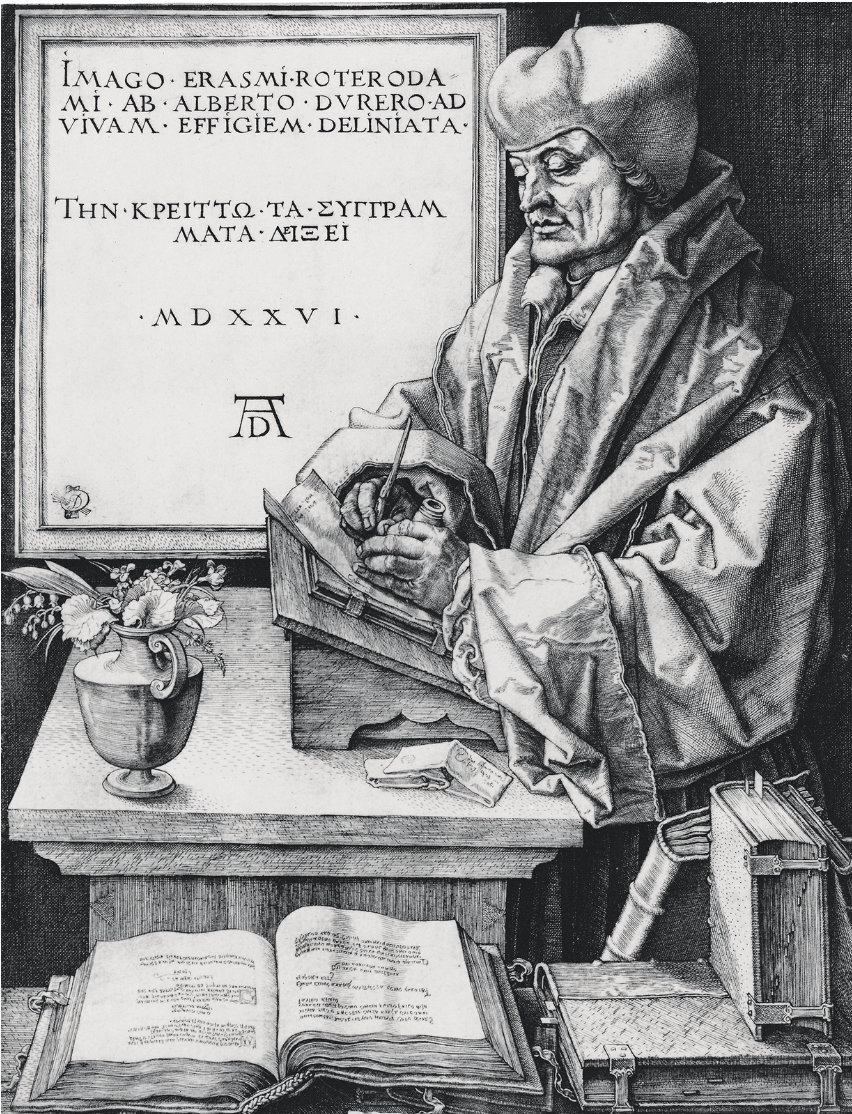
Albrecht Durer, Eramus of Rotterdam, 1526, Engraving (Northern Renaissance-Christian Humanist-)
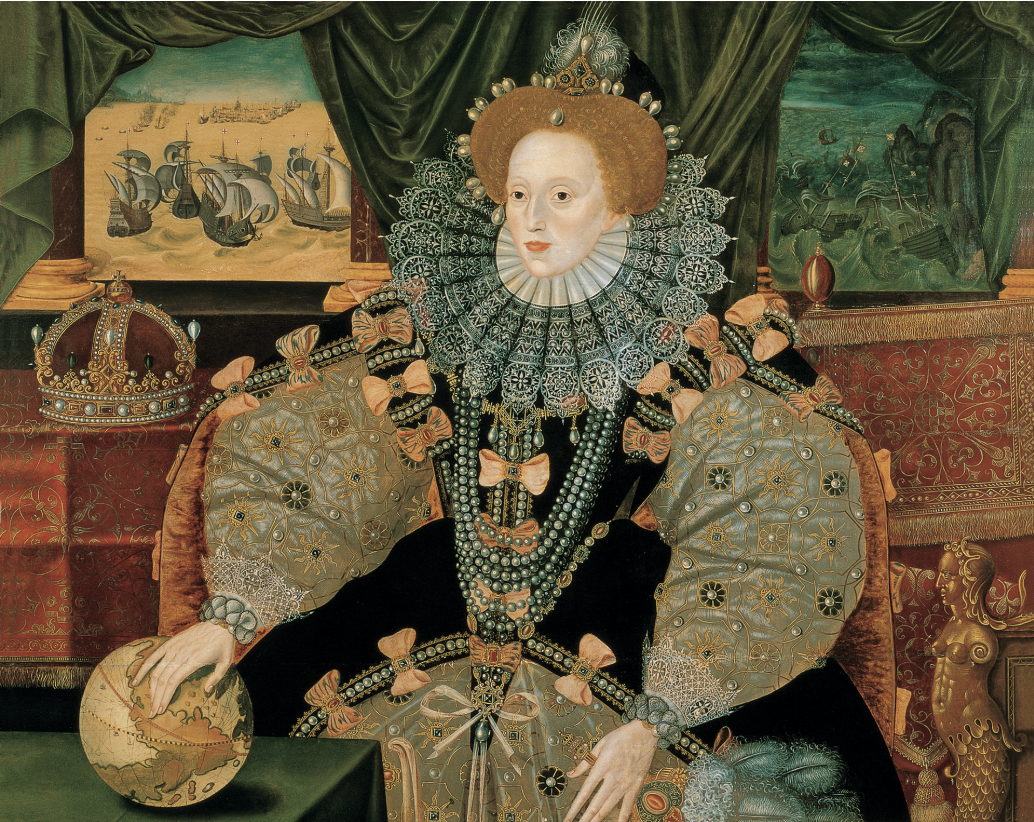
George Gower, “Armada” Portrait of Elizabeth 1, 1588, Oil on Panel, (Painted to commemorate English victory over Spain and England’s Maritime ambitions)
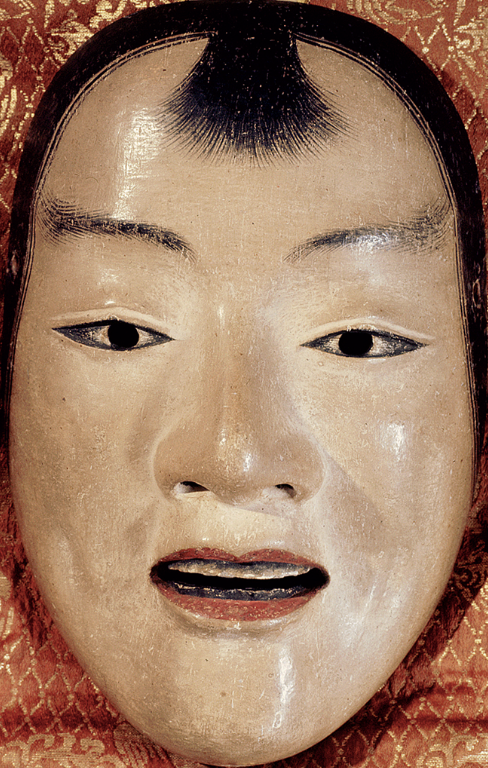
No Mask of a young monk, attributed to Echi, Japanese, 1370, Painted Wood, (Japanese Theater -No Drama-)
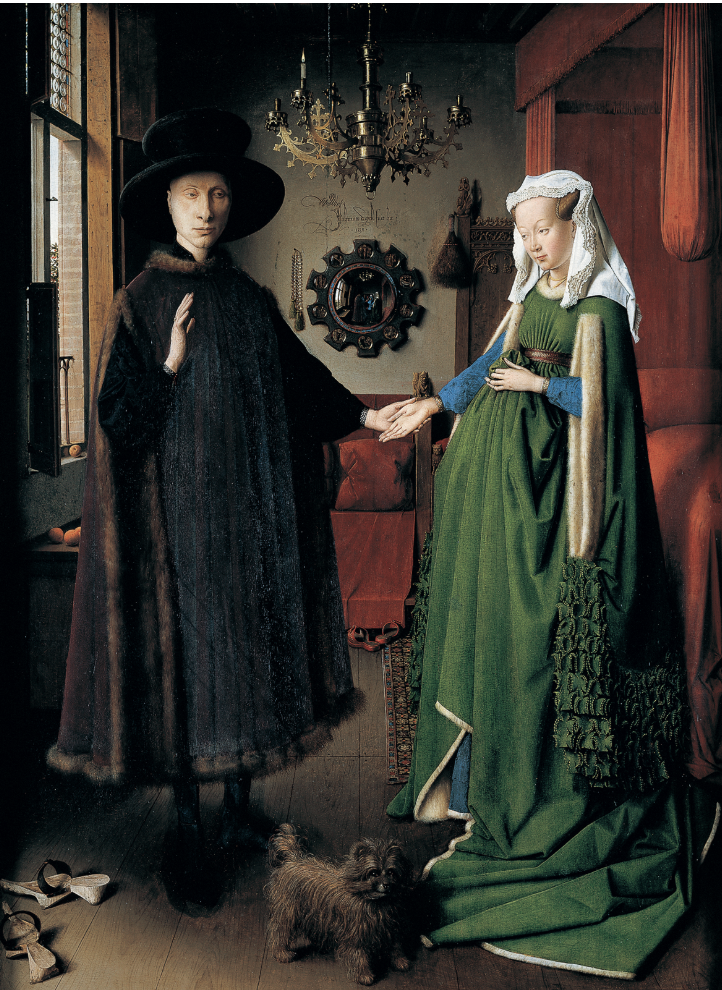
Jan Van Eyck, Arnolfini Double Portrait, 1434, Tempera and Oil on Panel, (Northern Art)
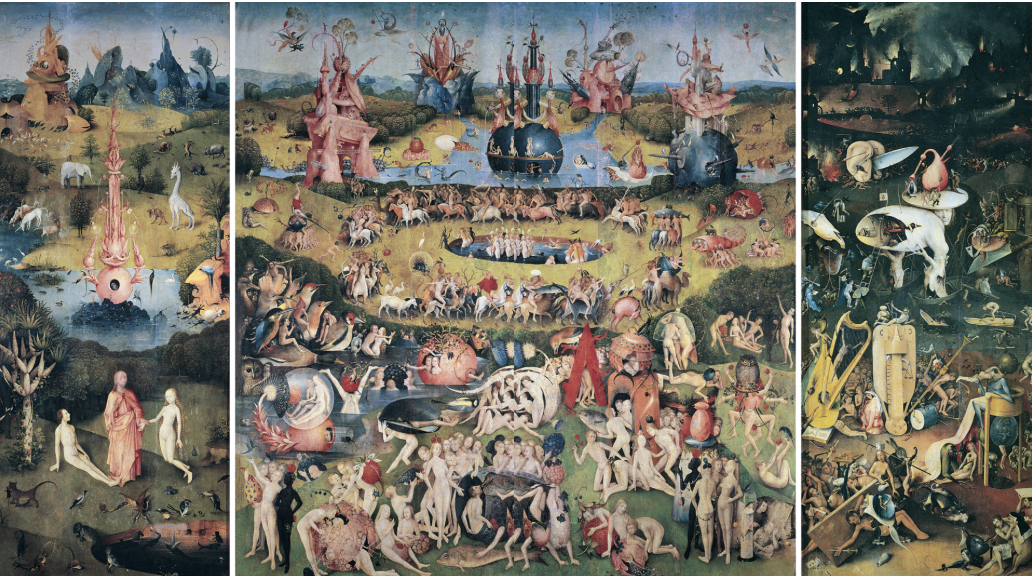
Hieronymus Bosch, The Creation of Eve: The Garden of Earthly Delights: The Tortures of Hell (Triptych-three part painting-), 1510-1515, Oil on Wood
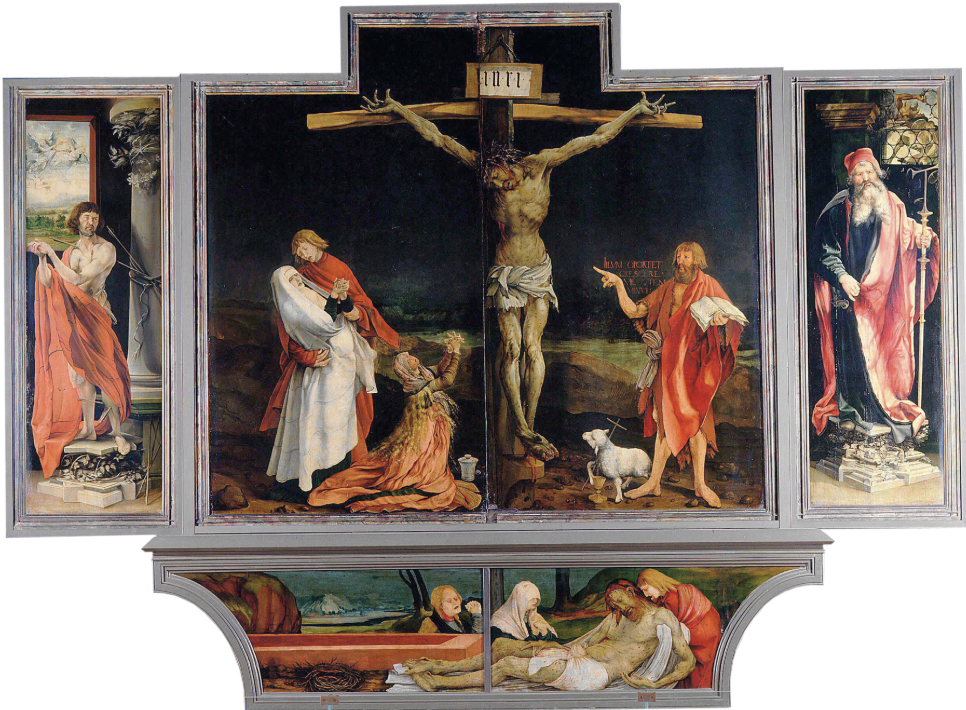
Matthias Grunewald, Isenheim Altarpiece, 1510-1515, Oil Painting
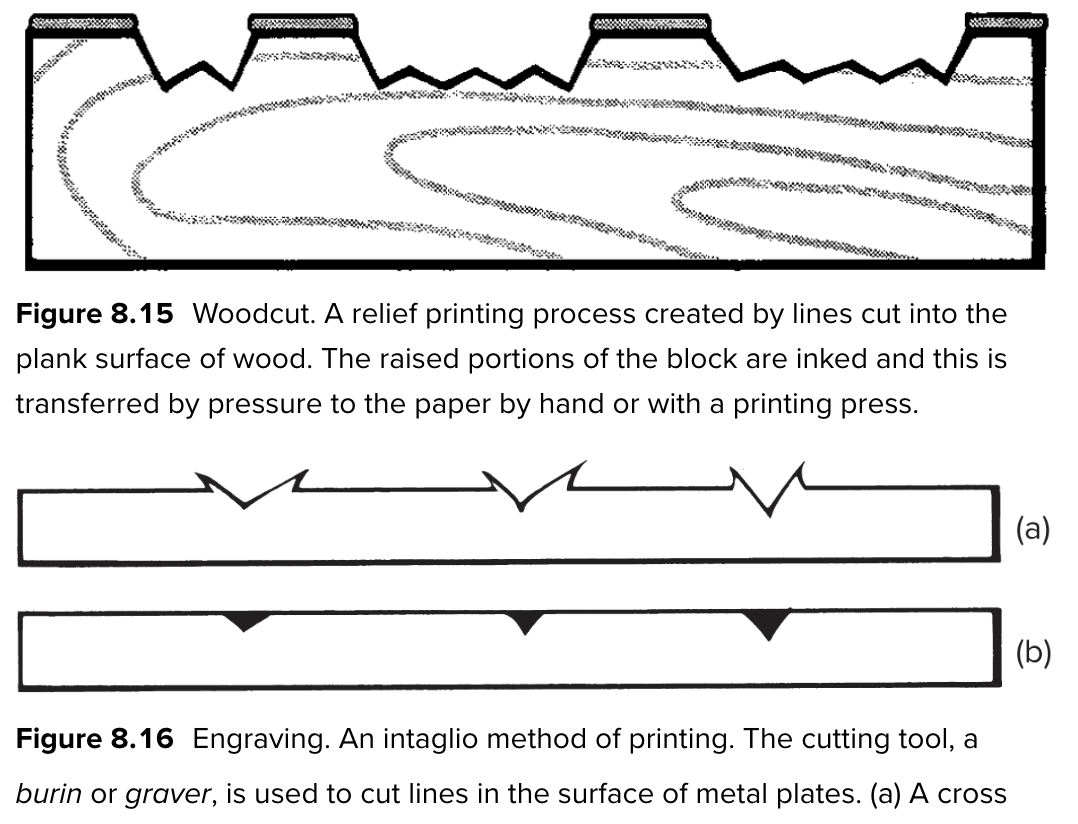
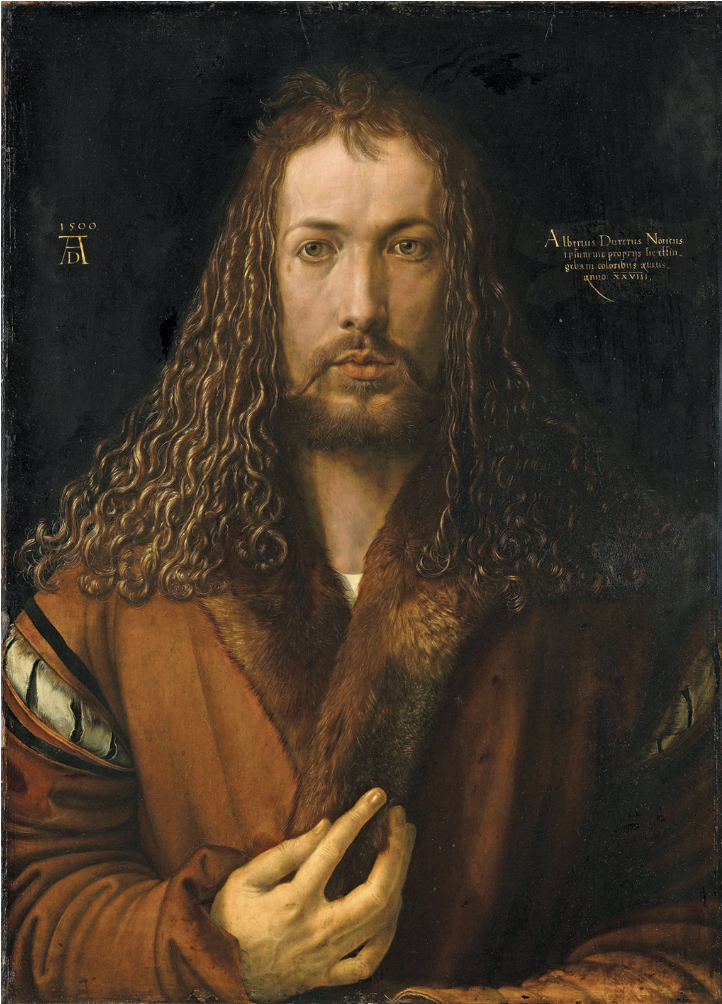
Albrecht Durer, Self-portrait in a Fur-Collard Robe, 1500, Oil on Panel, (Leader in Northern Renaissance and International fame for woodcut and metal engraving)
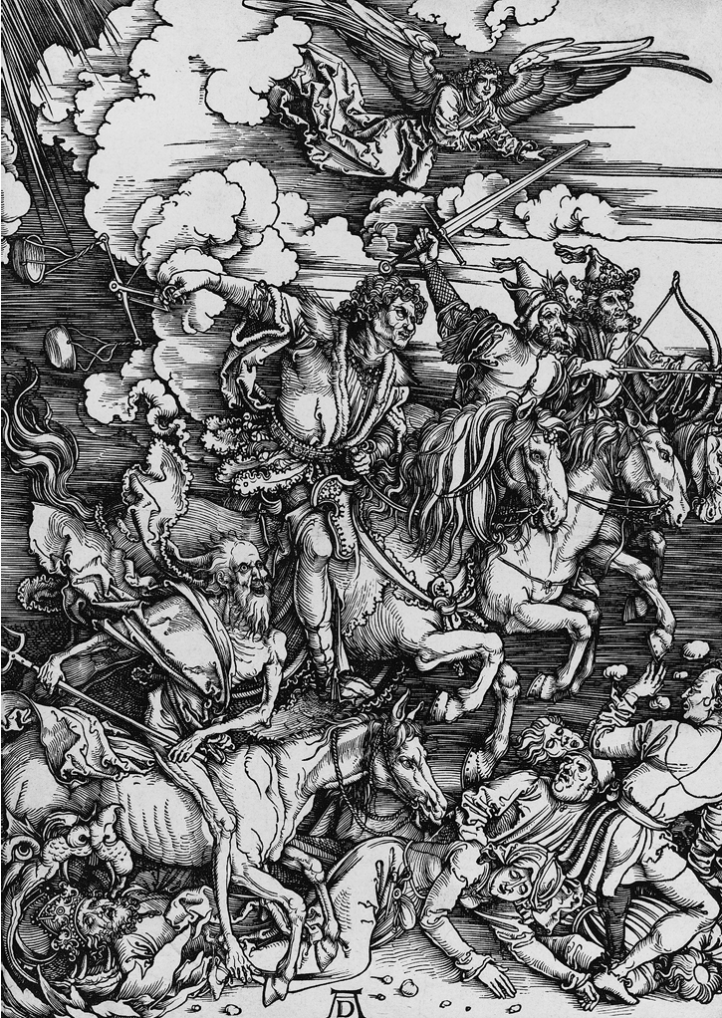
Albrecht Durer, The Four Horseman of the Apocalypse, 1496, Woodcut, (Illustrates the last book of the New Testament, The Book of Revelations-a.k.a The Apocalypse-)
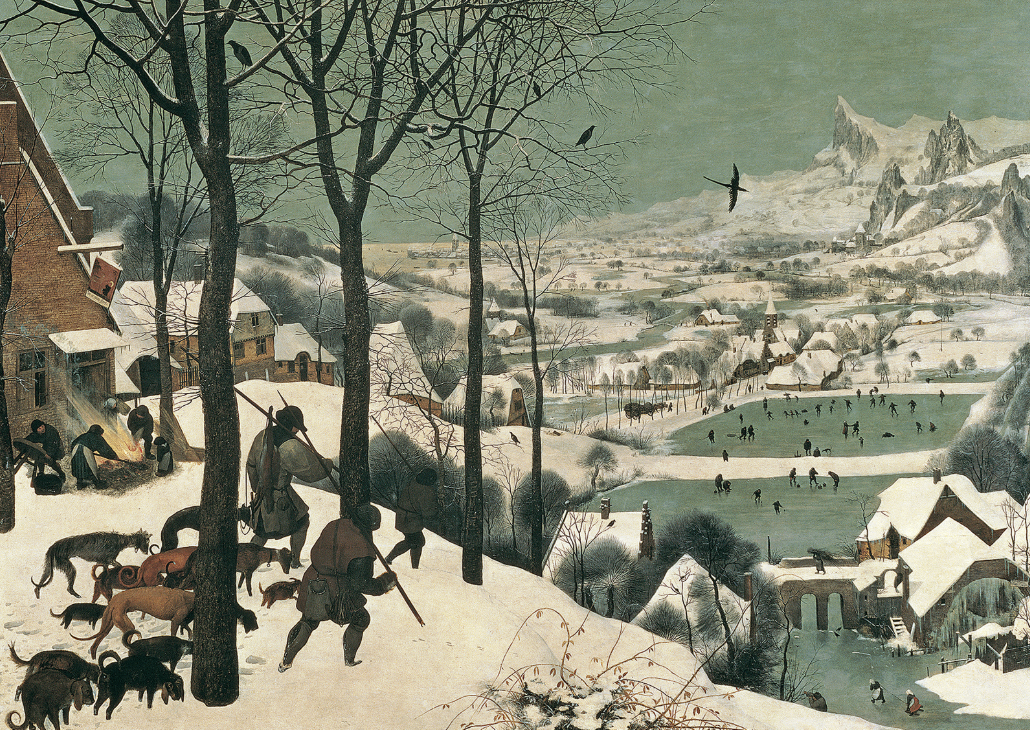
Pieter Bruegel the Elder, Hunters in the Snow, 1568, Oil on Canvas, (Northern Renaissance -Genre Painting [representation of everyday life of ordinary people])
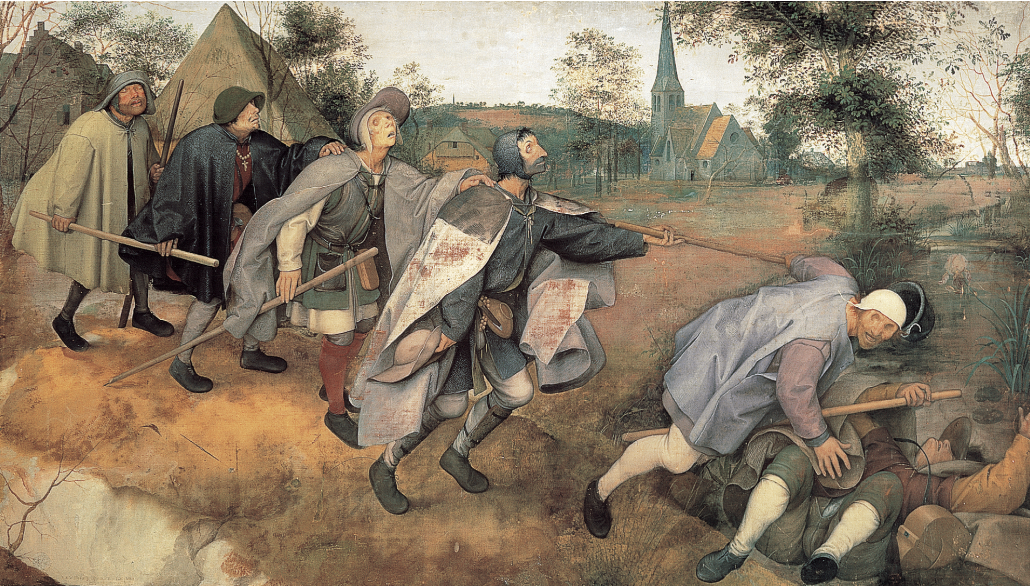
Pieter Bruegel the Elder, The Blind Leading the Blind, 1568, Tempera on Canvas (Northern Humanist concern with Human Folly)
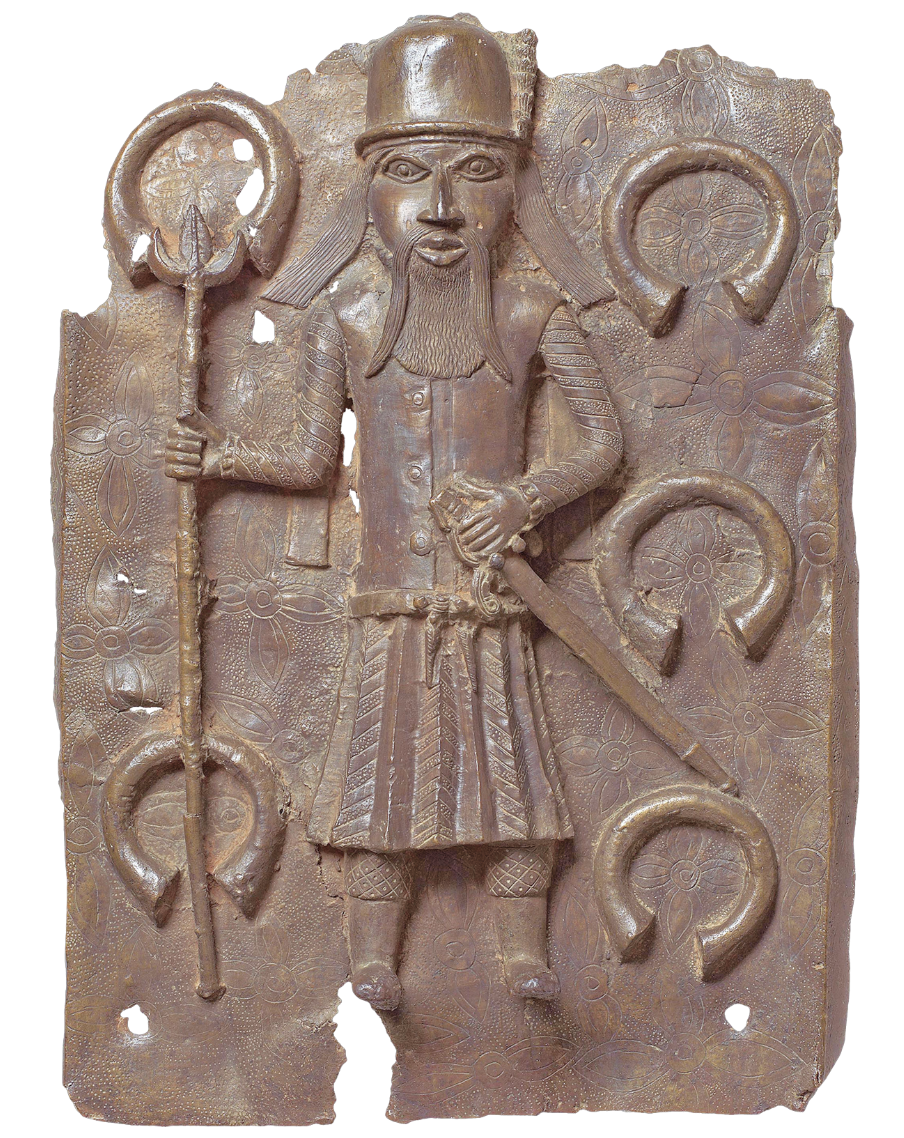
Benin Plaque showing Portuguese warrior surrounded by Manillas (Horseshoe-shaped metal objects used as medium of exchange), from Nigeria, 16th Century
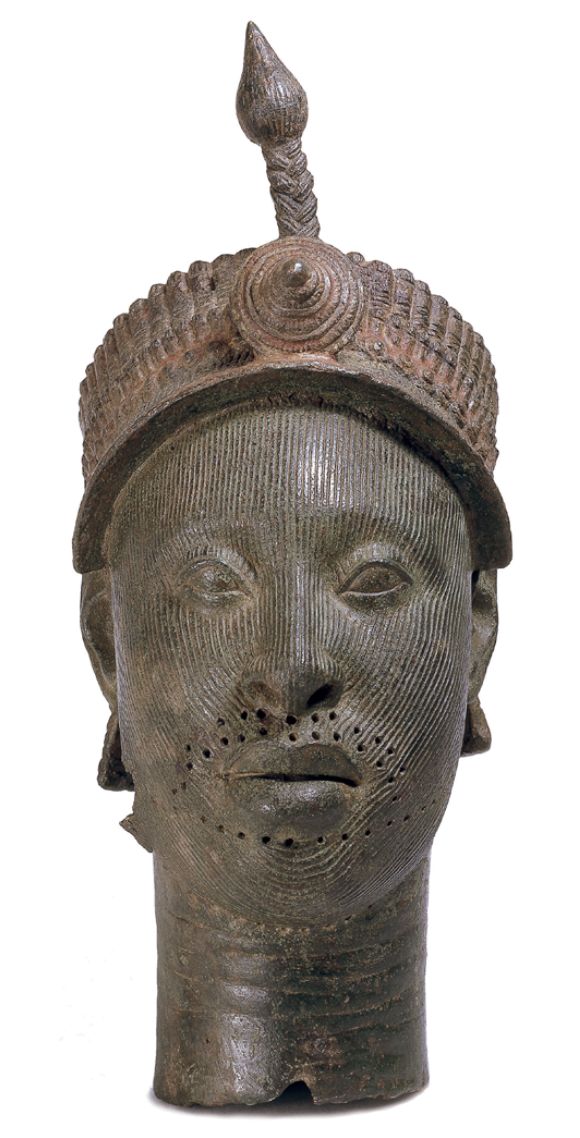
Brass Head with Beaded Crown and Plume, From Ife, Nigeria. Yoruba Culture, probably 12-14th C.E. Brass head cast using the lost wax technique
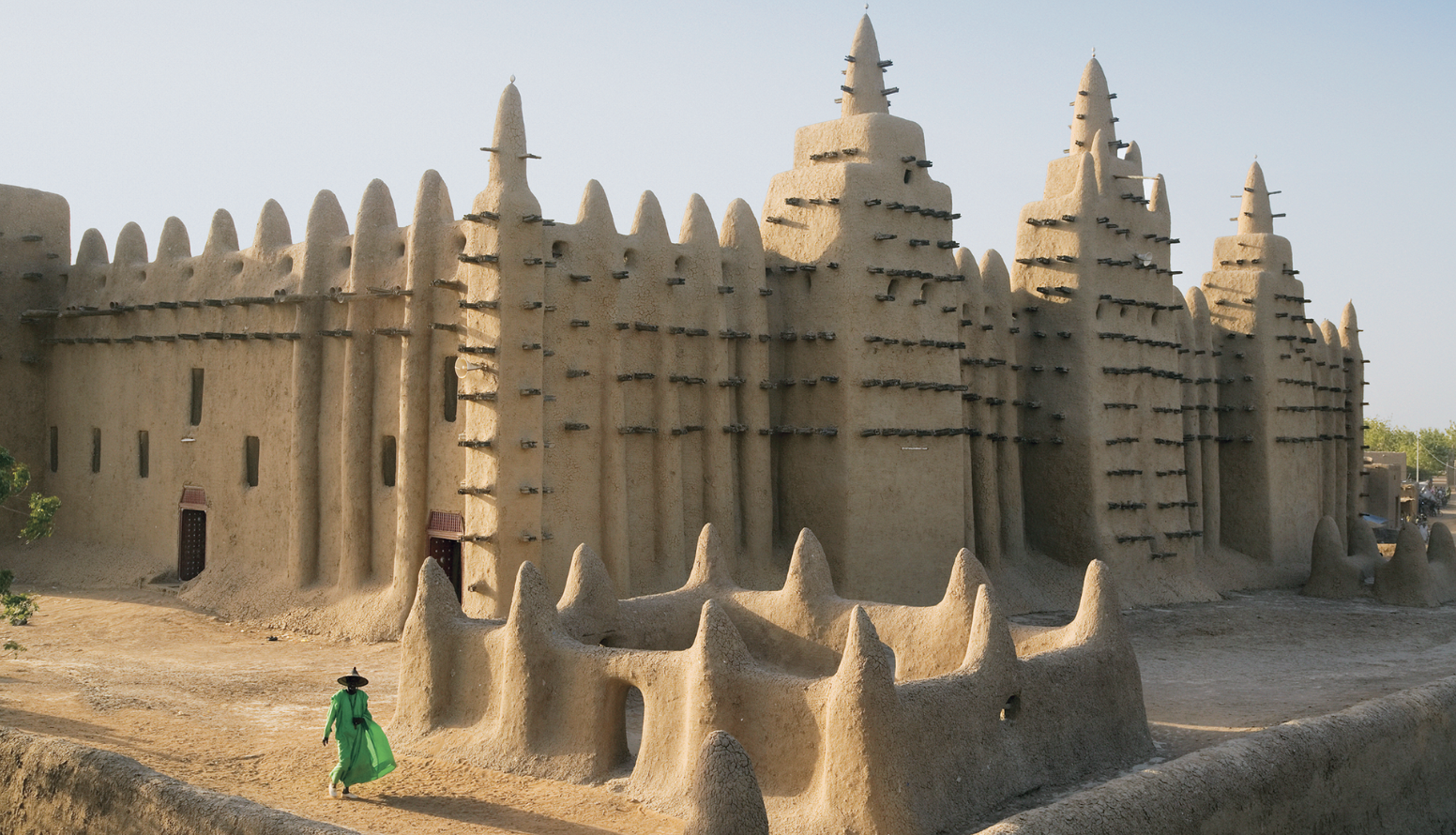
Grand Mosque, Djenne, Mali, 1906-1907
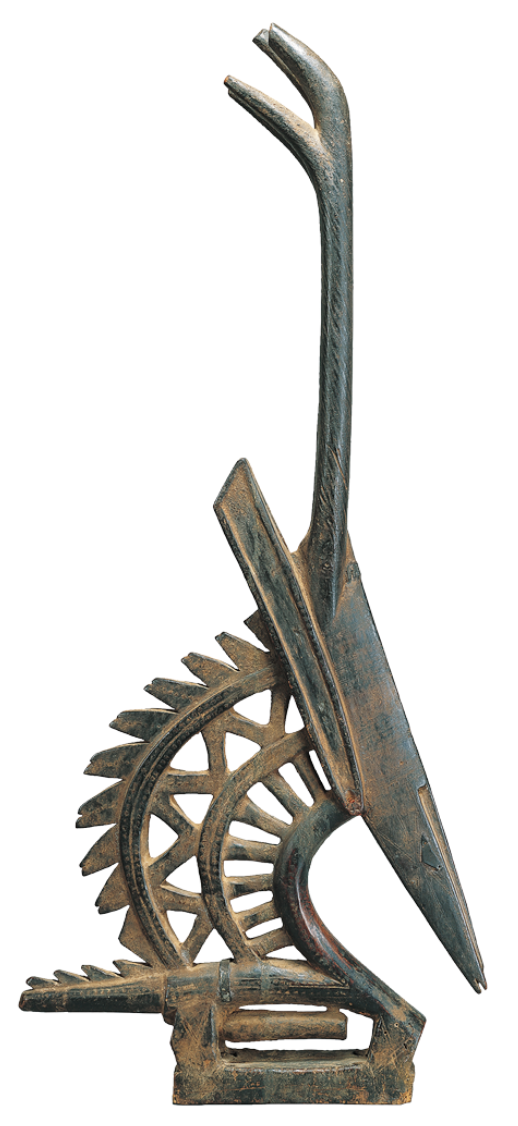
Bamana Antelope Headpiece, from Mali, 19th century, wood, (African Sculpture)
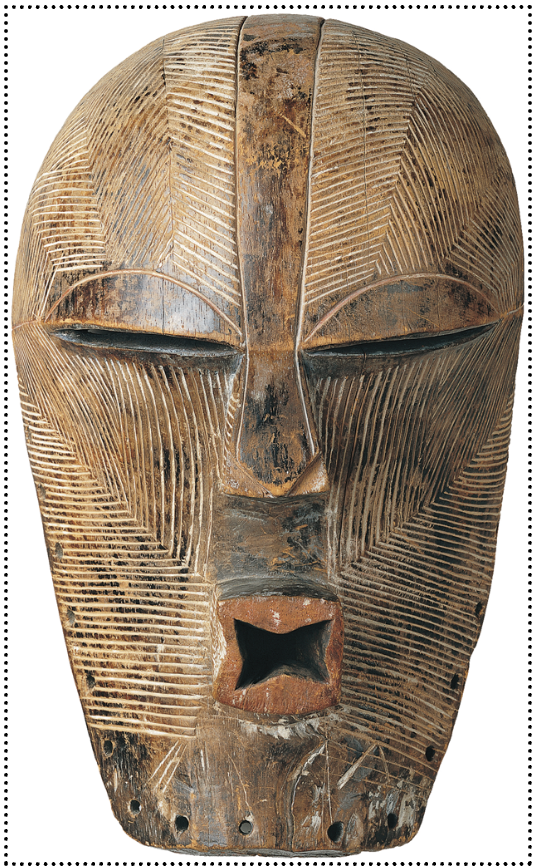
Song Mask, from Zaire, 19th Century, Wood and Paint
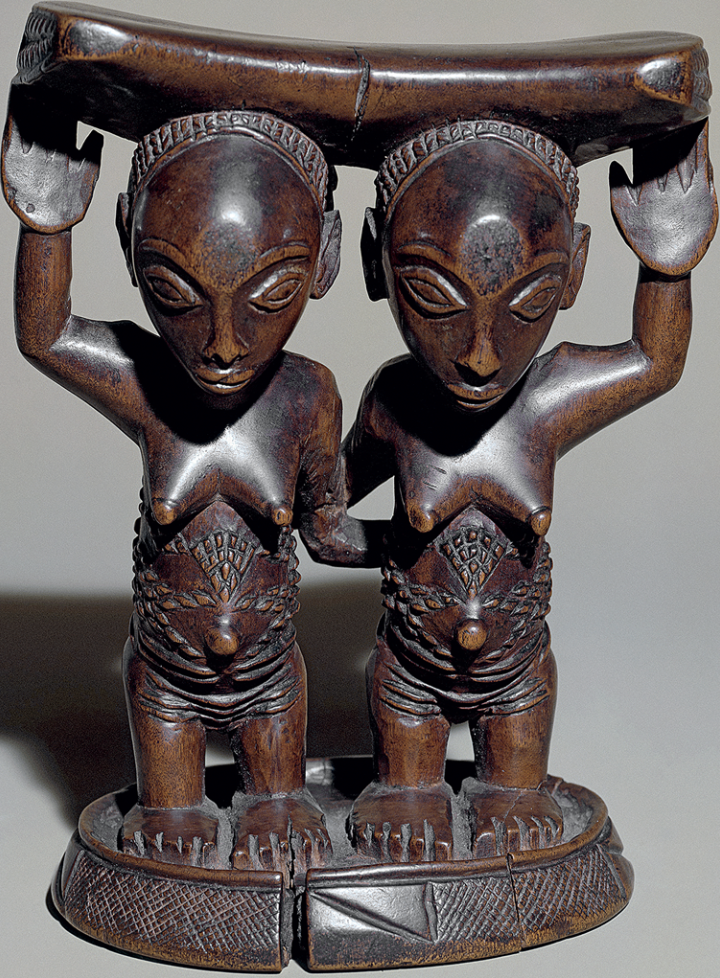
Wooden Headrest with Two Female Figures, Luba, Democratic Republic of Congo, Early 20th Century, (African Sculpture and shows Scarification and Coiffure are distinctive mark of ethic identity)
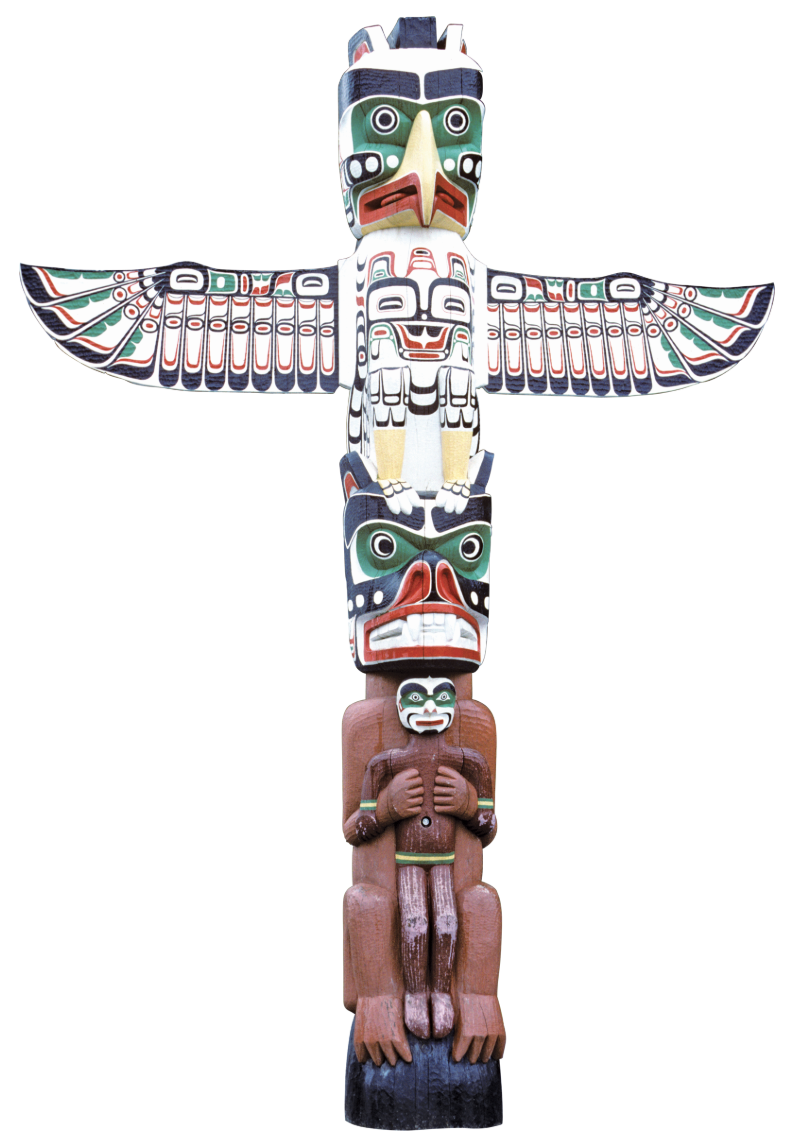
The Thunderbird House Post, replica Totem Pole, Stanley Park, Vancouver, British Columbia, Canada, 1988, Carved and Painted Wood
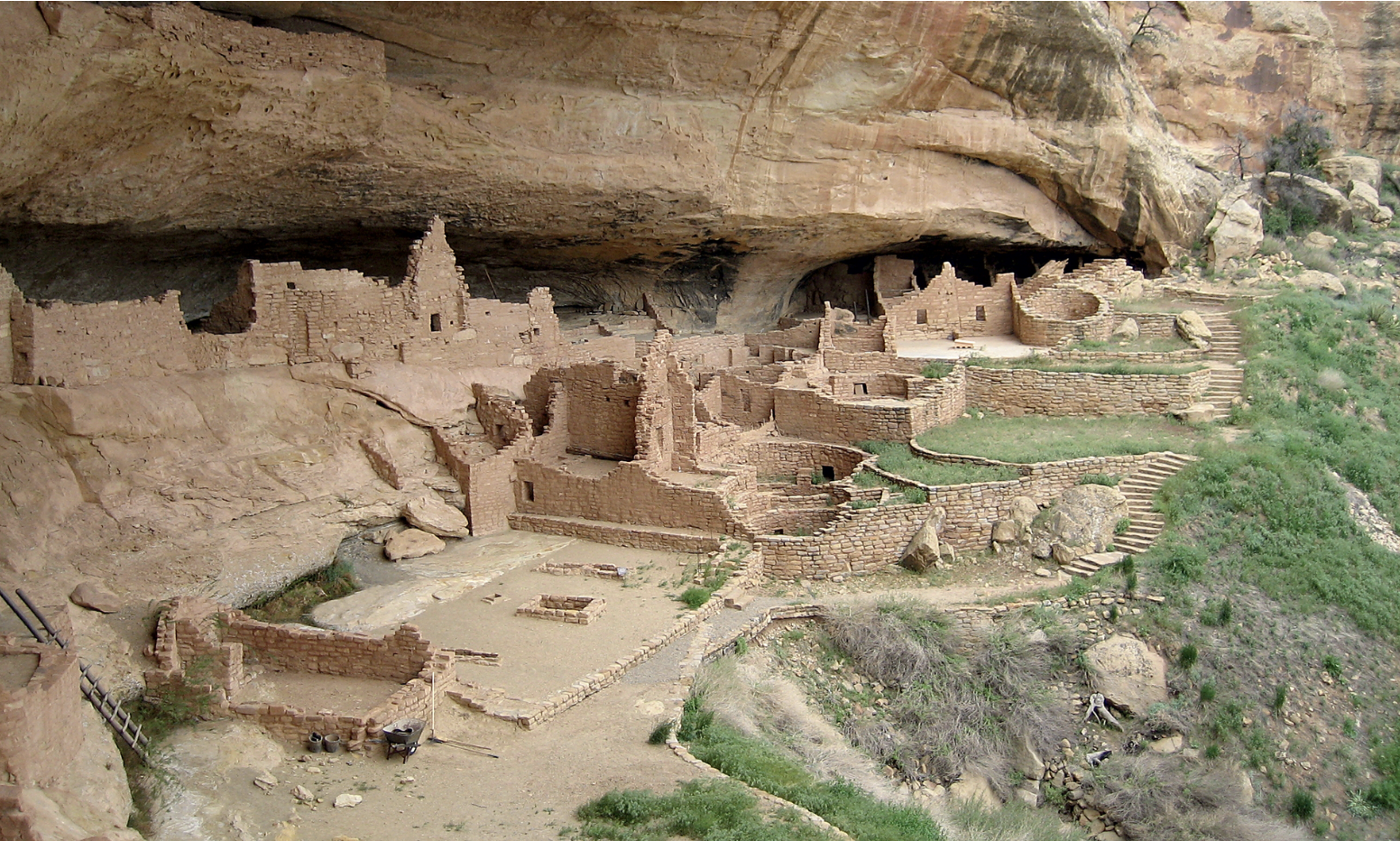
Cliff Palace, Mesa Verde, Colorado, inhabited 1073-1272, (Anasazi Sites)
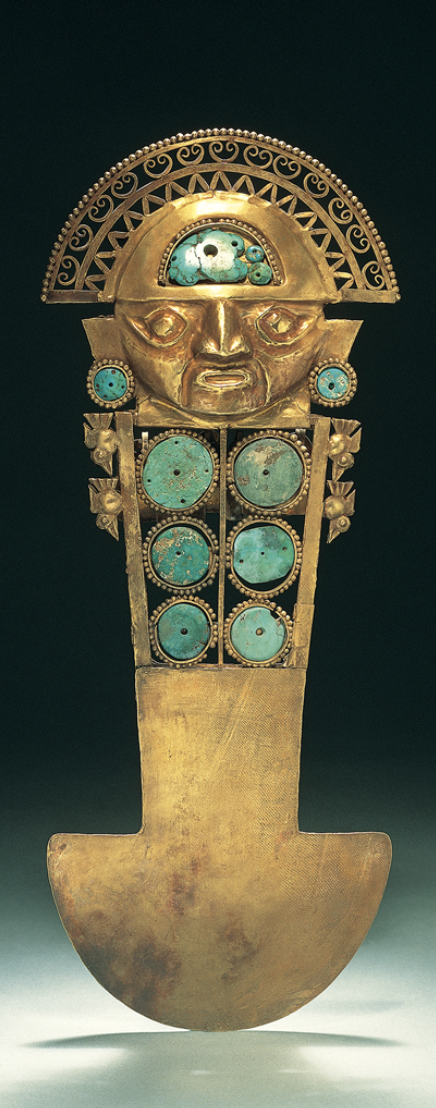
Ceremonial Knife, from the Lambayeque Valley, Peru, 9-11th Century, Hammered Gold and Turquoise inlay
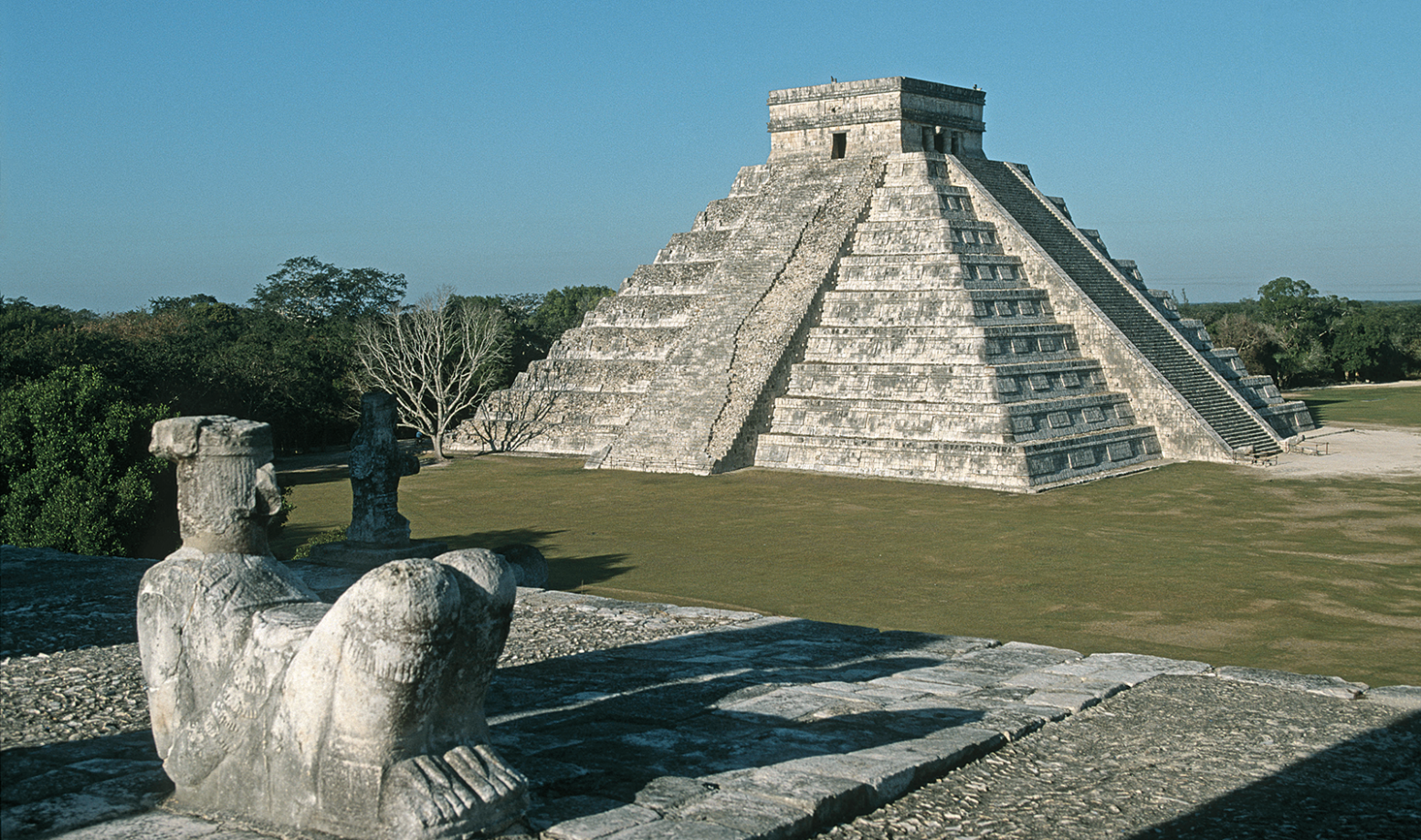
Temple of Kukulcan (Feathered Serpent), called by the Spanish “El Castillo”, with Chacmool in the forground, Chichen Itza, Yucatan, Mexico, Maya, 9-13th Century, (Terraced Pyramid)
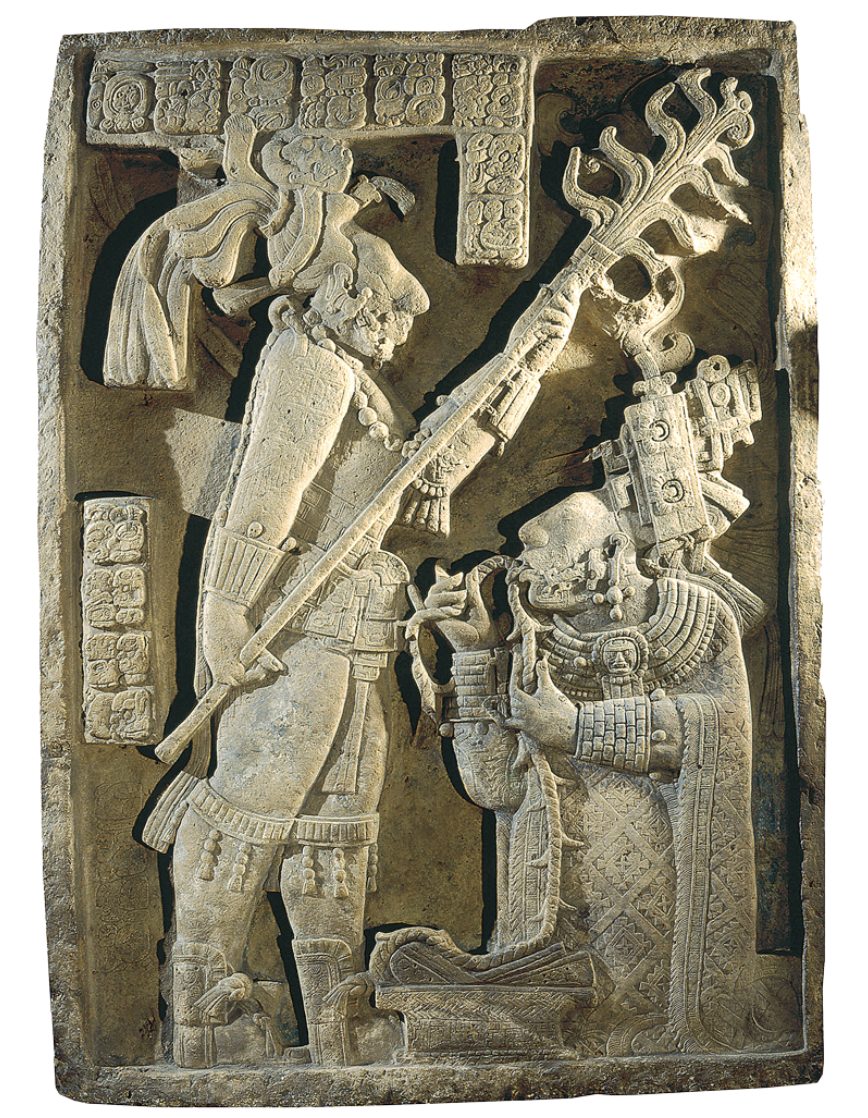
Lintel, Yaxchilan, Chiapas, Mexico, Late Classic Maya, 725 C.E., Limestone, (Blood Sacrifice)
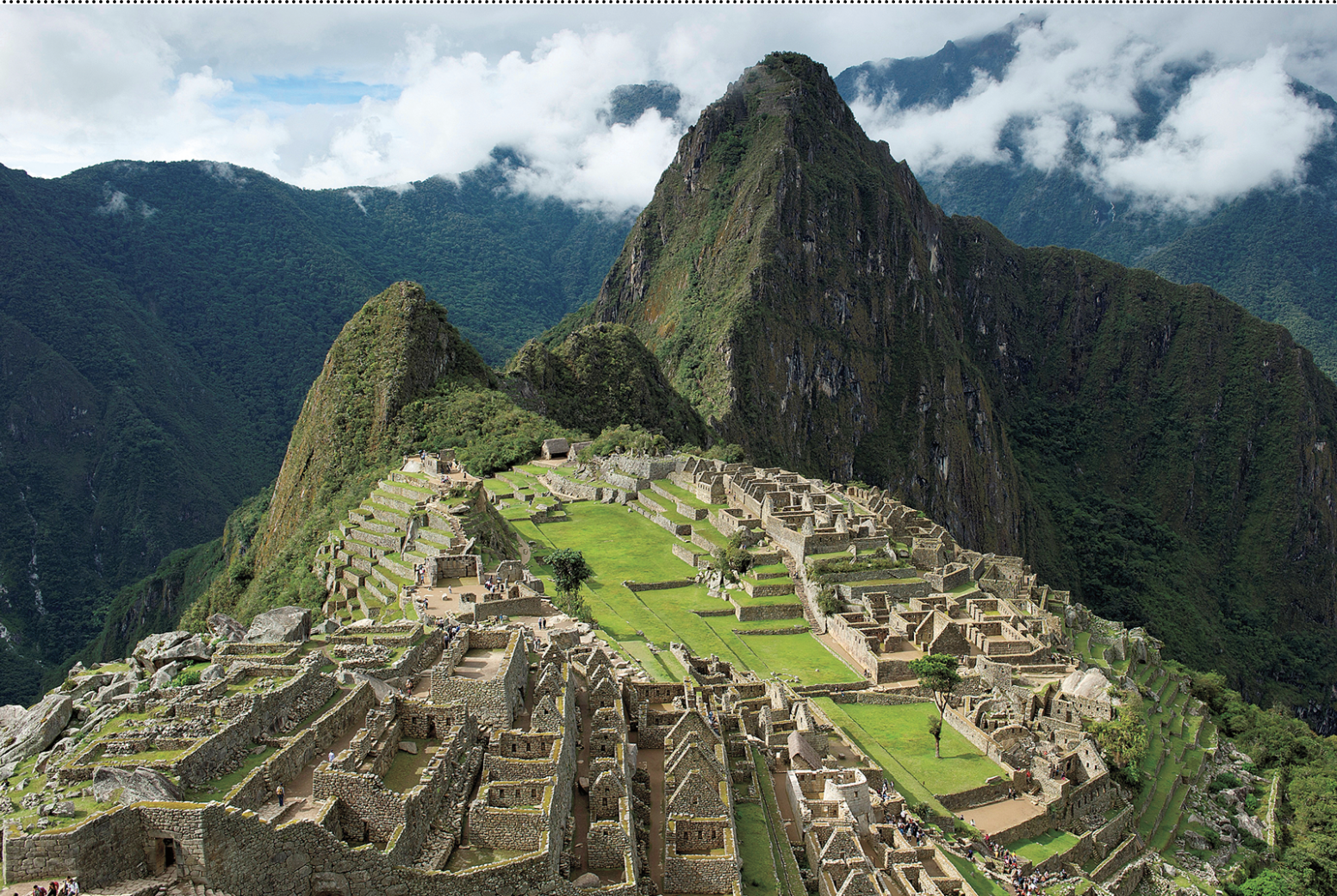
Machu Picchu, near Cuzco, Peru, 15-16th century
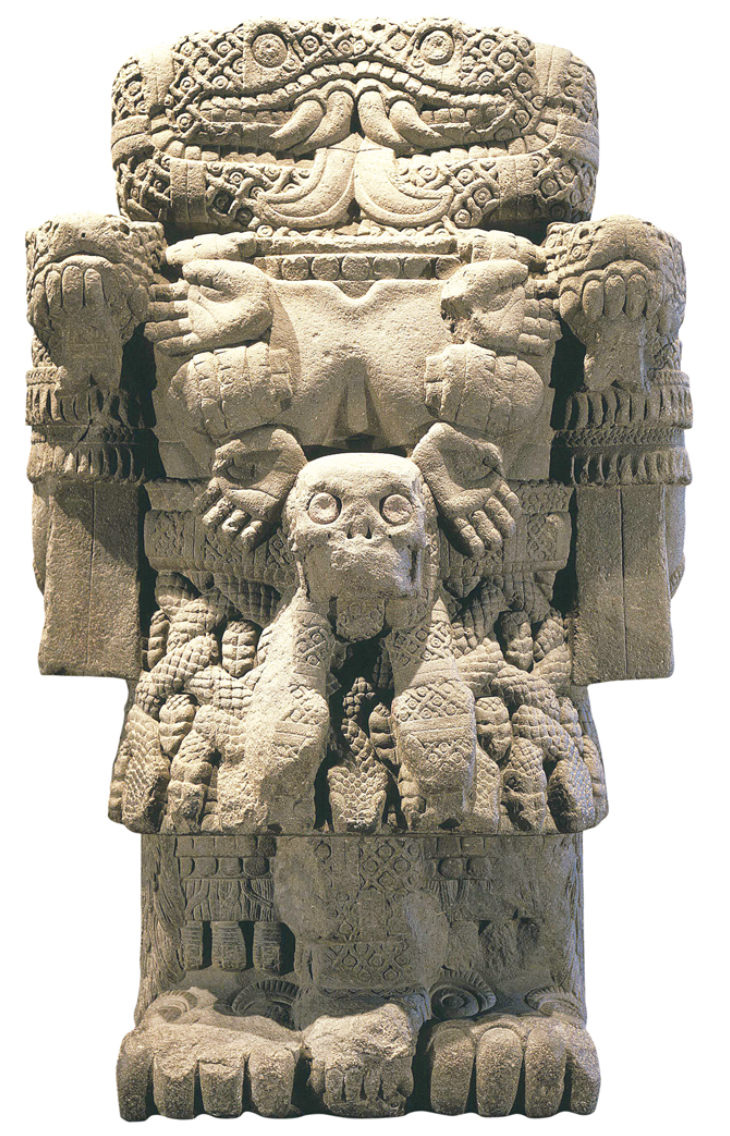
Coatlicue, Mother of Gods, Aztec, 1487-1520, Andesite, (Monumental Stone Sculpture)
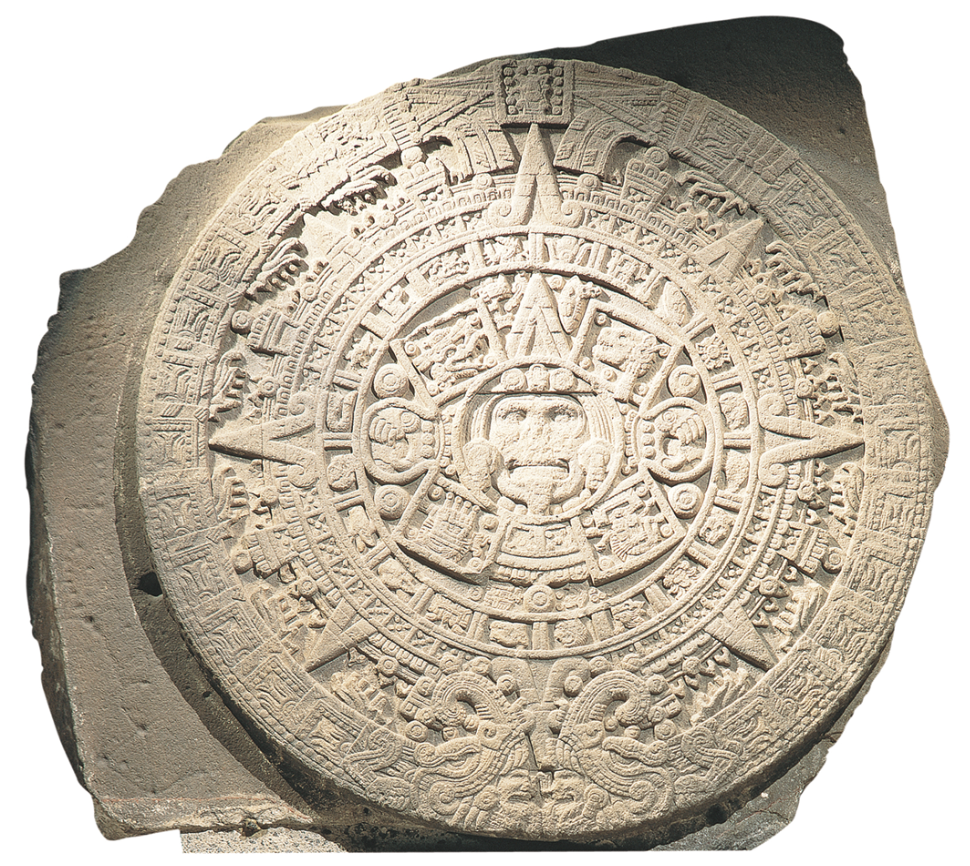
Sun Disk, known as the “Calendar Stone”, Aztec, 15th Century, (shows tradition of time keeping)